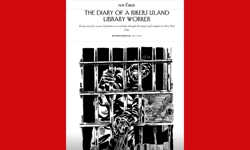The date – Wednesday 28th January, the place – Villa Park, the score – Aston Villa 2, Bolton Wanderers 0, the result - a sharp intake of breath at the offices of the Bolton Evening News. With Bolton Wanderers having won the first leg 5-2, this was it, the big one, the local team was going to Cardiff where they would face Middlesbrough in the Carling Cup Final on Sunday 29th February.
Most regional press execs like to think (in public at any rate) that the link between football and newspaper sales is a tenuous one. Stephen Hughes, editor and Carol Bannister, head of newspaper sales & promotions, are more practical. They see the figures and know that this strong linkage is a fact of life. A Wednesday night win for the Wanderers and a 2,000 sales uplift on the Thursday is no coincidence. Furthermore they knew that Bolton’s first appearance in a major cup final since 1995 was likely to be the sales opportunity of the decade.
The morning following Bolton’s semi final "win", they held a brainstorming session in Stephen’s office. The editorial, advertising and sales promotions teams were all represented and the aim was to decide the paper’s strategy for the month leading up to the final. Four broad themes emerged from this meeting. Firstly it was agreed that the Bolton Evening News should associate itself as closely as possible with the match. Everything should be done to embed the notion about town that the Bolton Evening News was THE information source for all aspects of the big match. Secondly the whole company must be mobilised and get involved. Thirdly momentum must build throughout the month peaking on match day itself. Fourthly every opportunity to increase sales must be exploited. Two concrete decisions were also taken. Two internal "champions" were appointed. Stuart Hatton, the field sales manager, was given the task of ensuring that internal communications within the company remained focused on the match. Dave Crookes from editorial was tasked with ensuring that editorial coverage of the match appeared every day. The other decision made was to put in a call to their sister paper, the Southern Daily Echo in Southampton, to see if they could pass on any advice gleaned from their experiences with Southampton’s appearance in last year’s FA Cup Final.
Editorial contribution
With the above themes in mind, Hughes went a long way to associate the paper with the cause. For the whole month of February the masthead was changed to the team colours (dark blue). Underneath the title ran the banner "Countdown to Cardiff" and inside the paper a "countdown box" displayed the days to go until the big match. Hughes ensured that there was front page coverage of the match (either as a teaser or as lead story) in every single issue. He also made space available on three days for full page cut out masks of Jay Jay Okocha, Campo and Big Sam (thank you Southampton). Two special supplements were scheduled. On the Thursday prior to the match was "The Final Countdown" and on the Monday following the match would be a special match supplement celebrating (hopefully) a famous win. As part of the "Final Countdown" supplement a page was made available for text messages of support for the team. Noone could accuse the editor of luke warm support, though there were two things he drew the line at; firstly he never allowed both teaser and lead story to be match related (for fear of alienating the non-footie fans) and he vetoed the inclusion of Lofty the team mascot on the masthead.
Sales day
Lest we forget, the main purpose of all this activity was to make more money and everything was geared to increased sales – be it more copies of the paper, ad space or bums on Cardiff bound coach seats. The centrepiece of the sales effort was Sales Day – Thursday 12th February. The whole company was divided into teams with each team comprising representatives from every department. Each individual was given a sales target and scored goals for their team by reaching target. The team with the most goals won – simple! The newspaper sales teams were given bundles of papers and told to hit the shopping centre, the ad sales teams were given targets for space sales within the supplement and the travel club was tasked with selling more seats on the Cardiff coaches. Significant extra revenue was generated by the day and the increased momentum spilled over into the rest of the campaign.
Trade marketing
Carol Bannister attaches a lot of importance to her relationship with the newsagents, seeing them very much as business allies. Fostering a good relationship should result in mutual benefits; her promotional activities help increase footfall and the newsagent’s good positioning of product ensures optimum paper sales. Hence Bolton Evening News reps place regular visits to these important trade partners. With the trade in mind, Bannister instigated a window dressing competition with a match theme (or two competitions to be precise – one for independent newsagents and the other for general retailers). A prize was awarded for the most imaginative and colourful display. The only pre-condition was that the display had to include a Bolton Evening News poster and the graphics team whipped up some special posters especially.
Merchandising
The art of good merchandising is often a question of making a little go a long way; with a bit of oomph and enthusiasm a lot can usually be squeezed out of the tightest of budgets. Hence the good folk of Bolton were blitzed for four weeks by Carol’s energetic sales teams toting a dizzying array of car stickers, wigs and bugs, complemented by the cut out and keep masks from within paper. Sales teams were despatched to Crompton Place and Market Hall shopping centres armed with bundles of newspapers and goodies to maximise single copy promotional sales. The wigs were sold for £1.50, or £1 with a copy of the paper. On other days a free car sticker was given away with each copy of the paper. The club, with whom the paper has cultivated an excellent relationship, even allowed them to sell wigs at the ground, until their own stock was in, that is.
Out and about
Apart from regular sorties into the shopping centres of Bolton, the newspaper sales team endeavoured to pop up wherever and whenever they could be sure of finding two or more Wanderers fans together. Whether it was queuing to buy tickets, arriving at the coach park at the Reebok stadium at 5am on match day morning or trying to find a good seat in one of the many pub screenings about town, fans were invariably greeted by cheery Bolton Evening News sales staff. Indeed the print run on the Saturday prior to the match was increased and copies (along with special Bolton Evening News branded match day posters to wave at the match) made available to Carol and her team to sell to travelling fans. Incidentally trying to sell newspapers at the pub screenings was one of the few ideas that didn’t take off; for some reason fans seemed more interested in finding a good seat or lining up the next drink than buying a newspaper!
Expats
Talking with Stephen and Carol, the two things that stood out most about the efforts of the team were the energy and sense of enjoyment. Perhaps the fact that the local team was not a regular participant in big finals helped focus the mind; everyone knew that this could be a once in a lifetime experience and there was no let up. It would be interesting to know how the teams at the Manchester Evening News and Islington Gazette approach the repeated cup final appearances of their local teams. A good example of making every moment count was their response to expat interest. Now catering for the expat community was not high on the list of priorities at the 29th January meeting. However they soon realised that a steady stream of them were leaving good luck messages via the paper’s web site. So Carol rounded up their email addresses and contacted them offering a bundle of selected issues from the period.
Victory plans
So far so good. Newspaper sales were up, the whole town was primed. All that was needed was for Sam and the boys to win the match and newspaper sales would surely top 40,000 for a good week following (Bolton Evening New’s ABC for six months to December 2003 was 35,337). A five thousand increase to the Monday print run was pencilled in, Carol’s team was primed to take maximum advantage of the triumphal open top bus ride through the town. A vox pop was planned to find out what ordinary Boltonians were doing when the final whistle went. Stephen was mentally finishing the flat plan for the special souvenir issue. And, and, and …. oh dear.
Middlesbrough 2 Bolton 1
Regrettably Jay Jay Okocha et al lost sight of their newspaper sales responsibilities. Middlesbrough scored two goals within the first ten minutes and, despite clawing one goal back, the match was lost. Gareth Southgate and his sales team from the Teesside Evening Gazette had won! Apart from the natural personal disappointment, what did the loss mean in sales terms? Monday sales after the match were up by about 1,500 (whereas it probably would have been 5,000 for a win) and Stephen Hughes thinks that a win probably would have extended the sales uplift by a week. The extra Monday supplement went ahead as planned, but more of a commiseration than celebration. The souvenir special was shelved.
The sense of exhaustion was palpable. Everyone had pulled out all the stops. Would they do anything different next time around? Hughes doubted whether they could have devoted any more space in the paper to it, and Bannister similarly couldn’t identify anything in particular. Book a holiday for the duration was one thought. In fact, the only thing they would change would be the result.
FEATURE
Countdown to Cardiff
When Bolton Wanderers reached the 2004 Carling Cup Final, few people in the town were as excited as the team from the Bolton Evening News. In terms of newspaper sales opportunities this was a dream come true.










